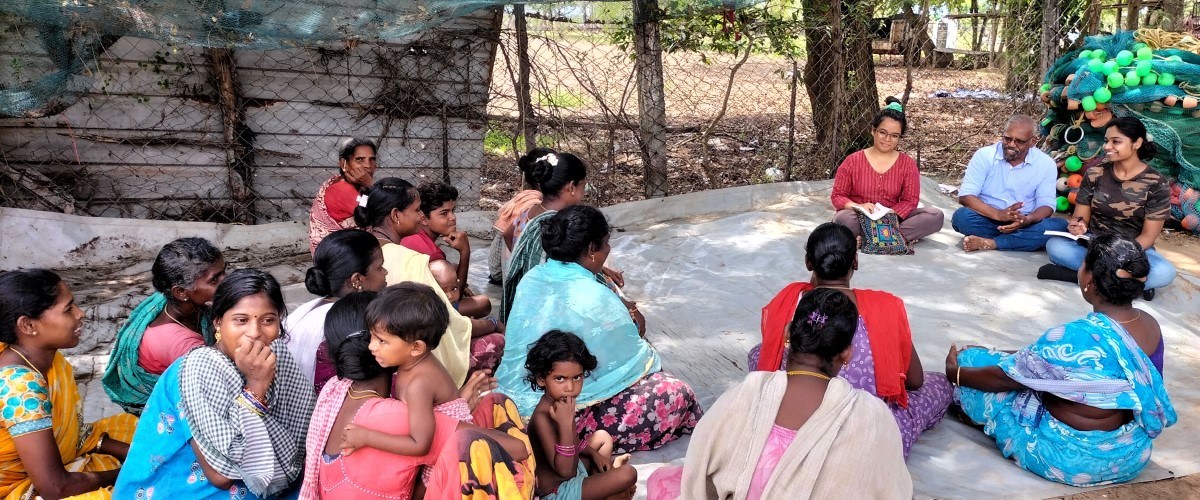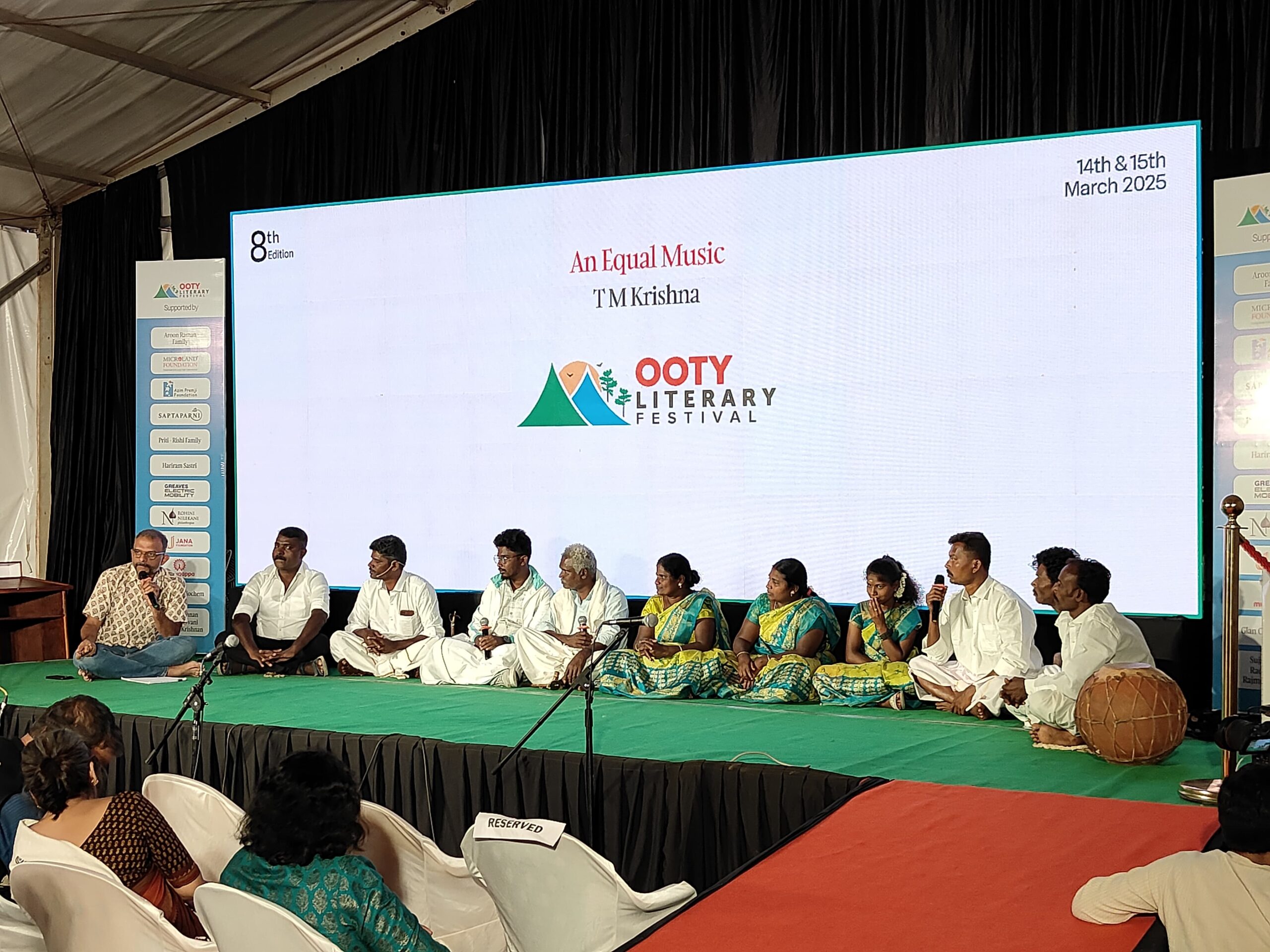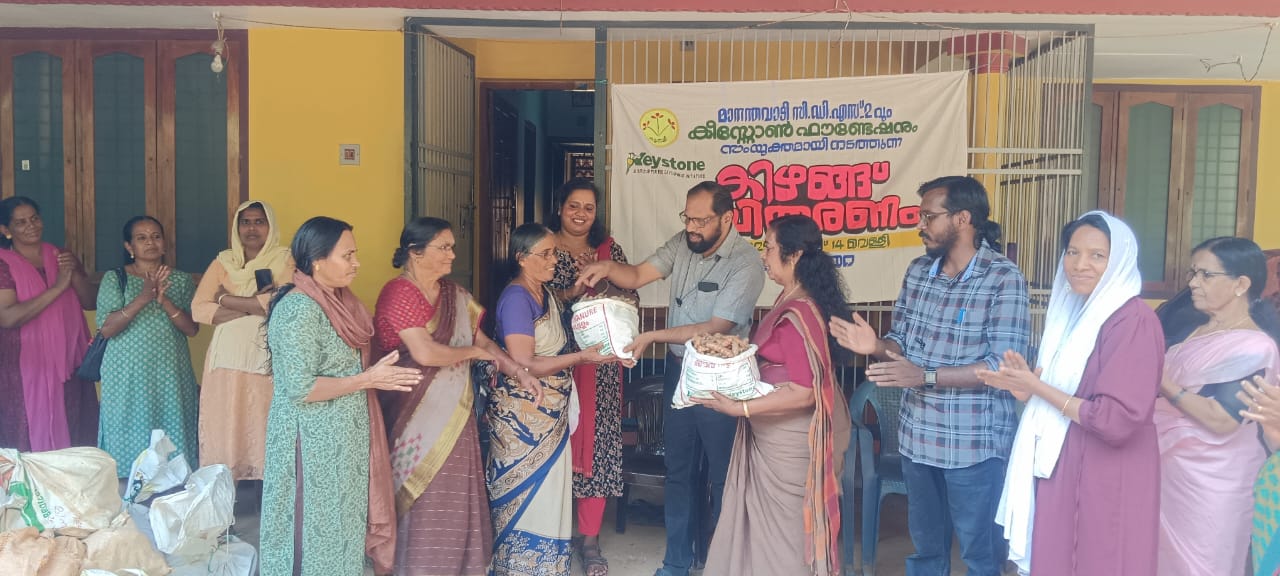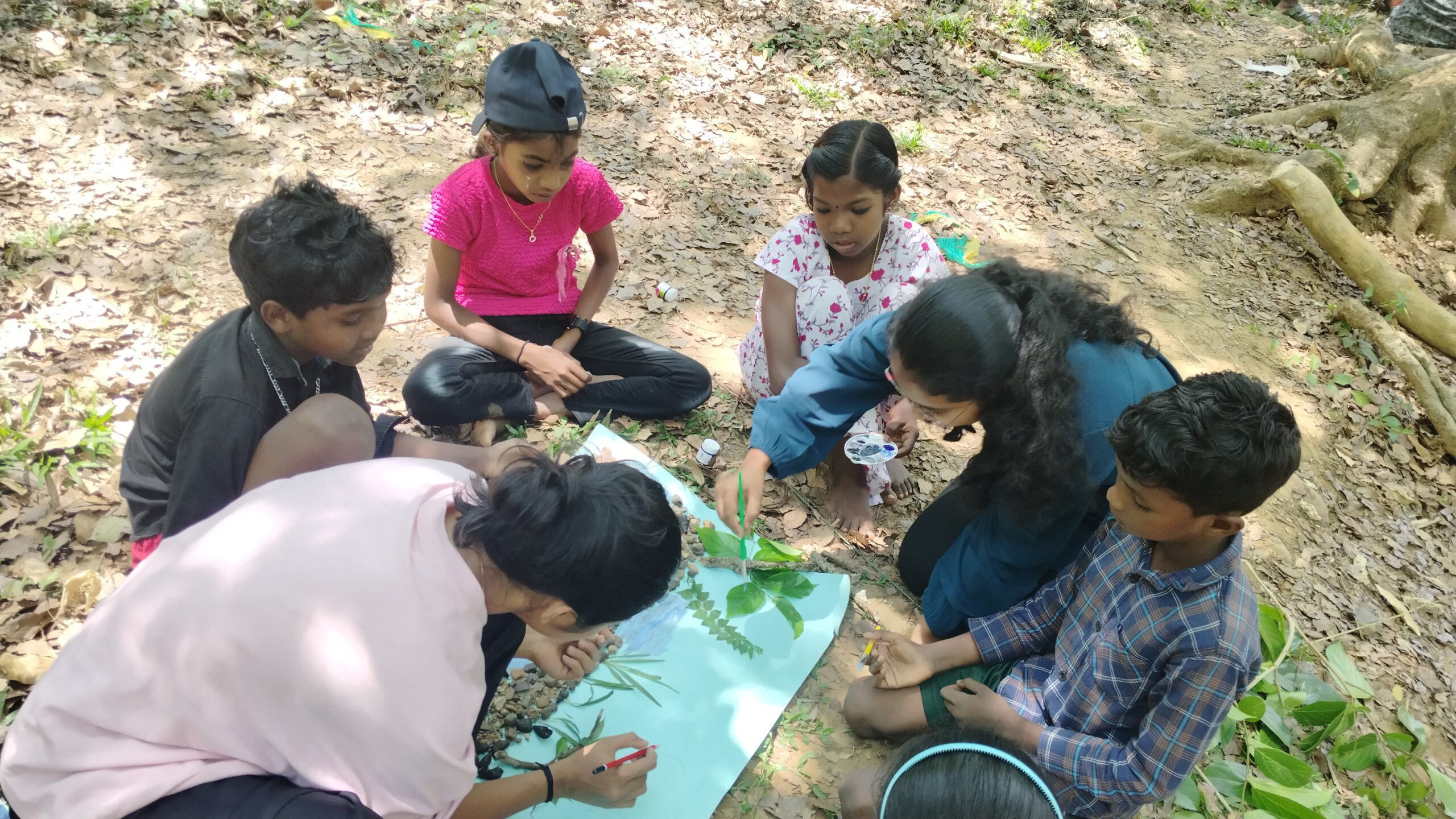June 26, 2023
By Vaishnavi Patil & Yashaswini N.
Project Coordinator & Technical Coordinator – UK PACT (Climate Change)
As we onboard the UK PACT Green Recovery Challenge Fund, the team travelled to Cuddalore and Chennai this week to explore one of three potential field areas and expand on the early vision and strategy of our working model for climate adaptability in Tamil Nadu. A preliminary site survey was conducted in and around Killai Mangrove Reserve Forest to gain initial perspectives from local communities on ecological change and take scope of potential opportunities for research.
The UK PACT project is active in three districts – Nilgiris, Coimbatore and Cuddalore. In each region, the team will seek to understand the problems are faced by locals whose livelihoods depend on a vulnerable ecosystem. Their observations of environmental change will be measured by the team within several aspects: impact on livelihoods, vulnerability of ecosystems, community relationships and local governance systems. This will be done using the MRV model (Measuring, Reporting and Verifying of data).
On June 24 in Cuddalore, District Forest Officer Somesh Soman helped us make arrangements for stay at the forest department guesthouse within Killai, where we first met Range Forest Officer Iqbal. He provided much insight on the history, livelihoods and culture of fishing and farming communities that rely on the mangrove ecosystem in Killar. He spoke of the devastating impact of the tsunami on the coast on Tamil Nadu in December 2004.
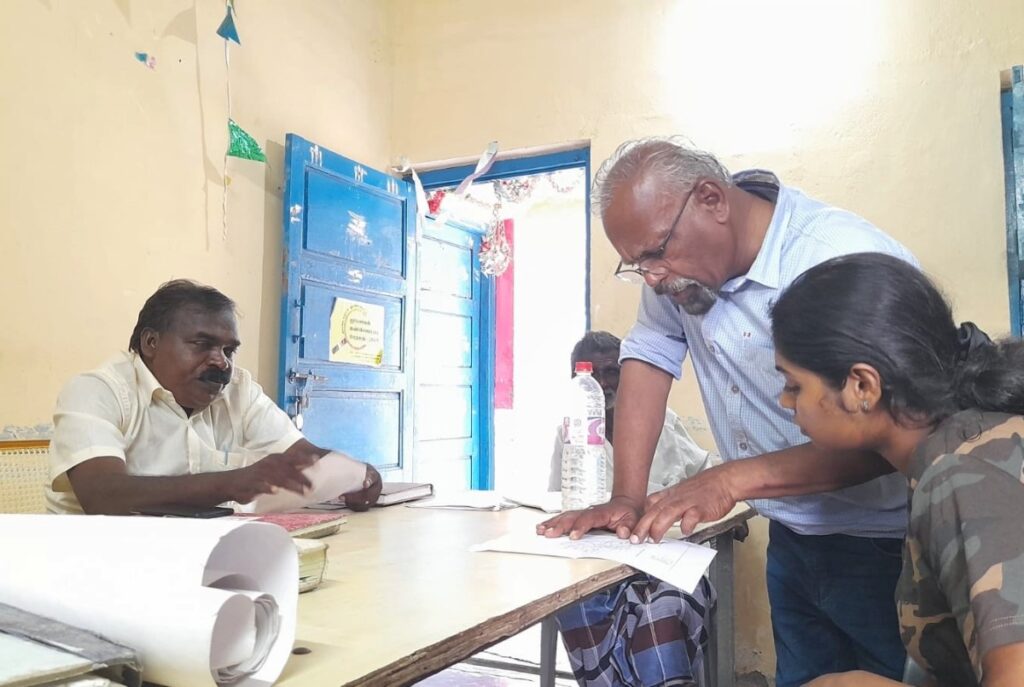
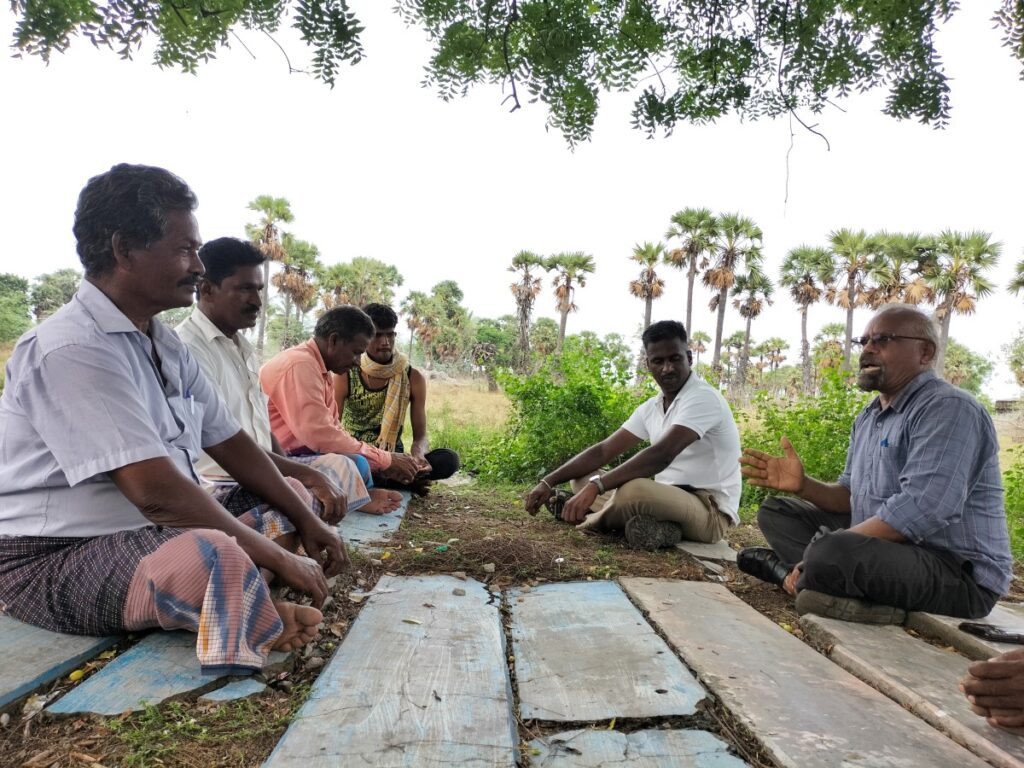
Robert Leo along with the UK PACT team speaks to local communities to understand their experiences.
Our team will be working with the fishing groups that rely directly and indirectly on the mangrove for their catch. We met with two fishing groups that spoke about ecosystem changes they have observed over the years such as rising temperature of seawater, depletion of flora and fauna, changes in fish breeding and migration patterns and so on. They revealed that today they are only able to catch 20% of what their catch would have been at the same time of the year five years ago!
When asked about what the reasons may be for such changes, the locals pointed to excessive siltation that is blocking estuaries and increasing salinity of mangrove waters significantly. While the cause may point to several anthropogenic and ecological factors, the result has been a decline in fish populations that directly impact the livelihoods of the fishing groups. Locals also spoke about how leaf litter has reduced by a large extent, in turn reducing the nutrient content of the soil, which affects breeding patterns.
Another point made by the groups was regarding compensation. During breeding months, they are banned from fishing by the government, which provides a meagre compensation of INR 5,000 a month that does not sustain the households sufficiently.
We feel that the groups harbour a wealth of valuable traditional knowledge passed down through the generations, of the local ecosystem in Killai. In the face of unpredictable ecosystem change set in motion by climate change, this knowledge must be explored further and communicated to authorities for advocating adaptability measures.
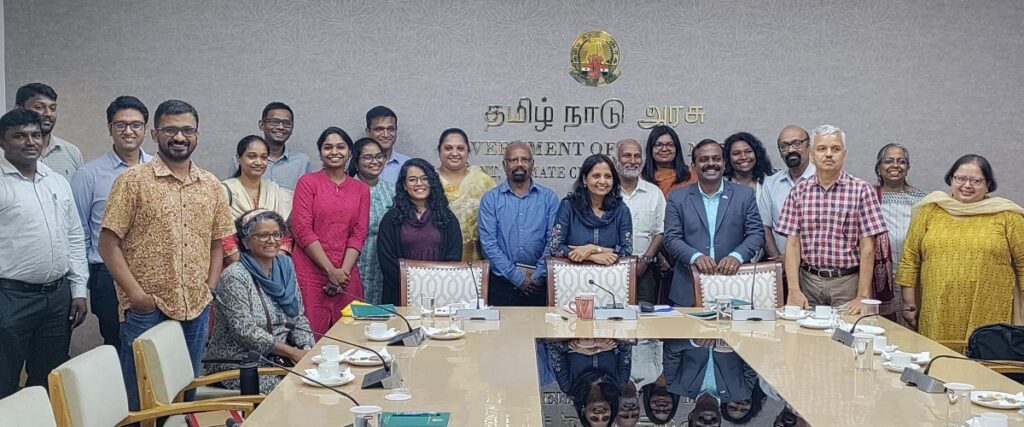
The next two days were spent by the team in Chennai, where we met with the Technical Advisory Group of the UK PACT fund. Members present were Hisham Mundol, Chief Advisor, Environmental Defense Fund, New Delhi; Dr. Neema Kudva, City and Regional Planning, Cornell University; Dr. Deepak Jaiswal, IIT Palakkad; Dr. Deepa Senapati, University of Reading; and Dr. Michael Garratt, University of Reading.
June 25 saw a brainstorming session with the members on the vision of our work within this project at Keystone, along with a complete S.W.O.T. analysis with risks being assessed in each working area. The following day, we witnessed the inauguration of a climate studio at Anna University, within the Centre for Climate Change and Disaster Management. We learned about data collection at the state level and also explored opportunities for collaboration. We also visited the Tamil Nadu Government Secretariat building, where we attended a workshop on the MRV model.

